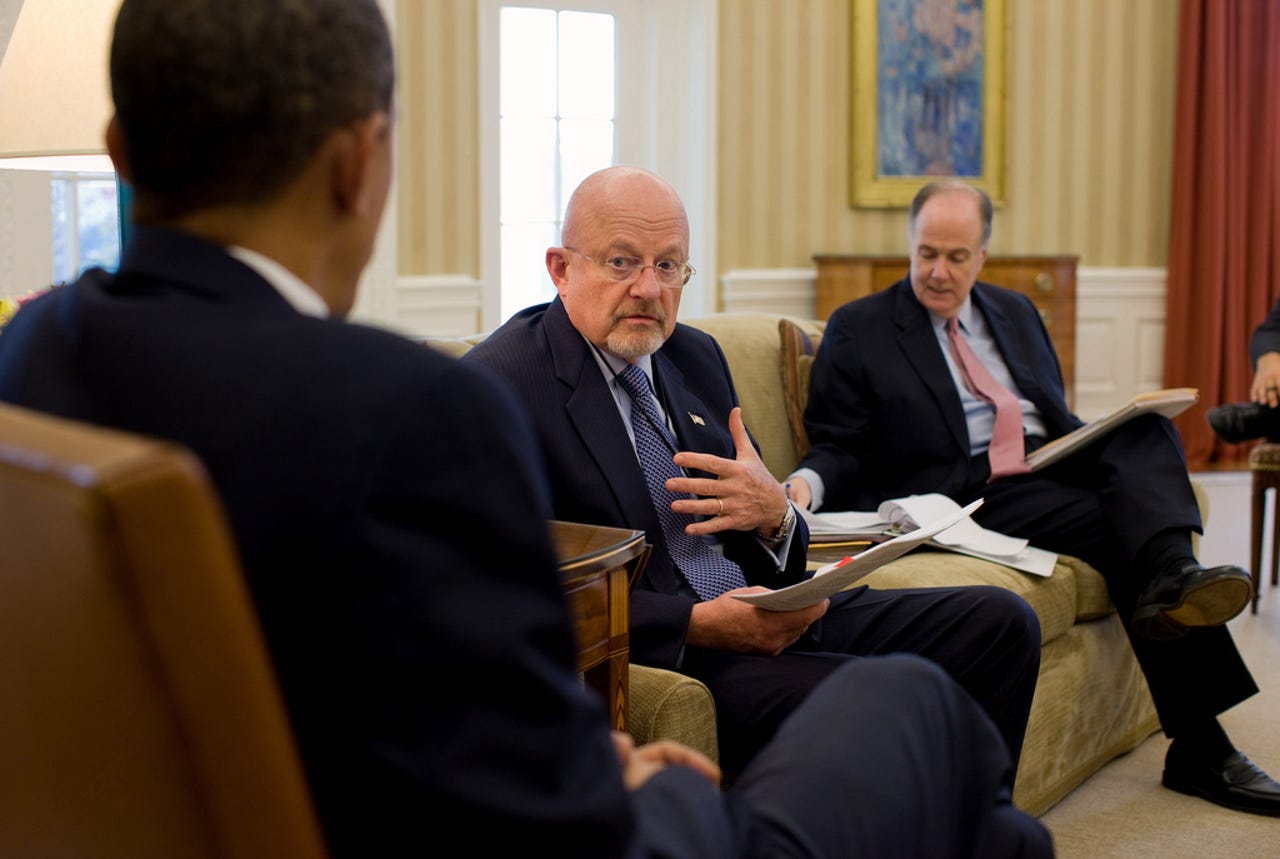Obama calls for fewer secrets in government


President Obama is briefed by Director of National Intelligence James Clapper in 2010. (Image: White House/Flickr)
President Barack Obama has criticized his administration for over-classifying sensitive government information, despite calling it the "most transparent" ever.
The president said in an interview on Sunday that some government departments, including in the White House, sometimes treats information as a state secret when it shouldn't be.
"What I also know, because I handle a lot of classified information, is that there are -- there's classified, and then there's classified," said Obama. "There's stuff that is really top-secret, top-secret, and there's stuff that is being presented to the president or the secretary of state, that you might not want on the transom, or going out over the wire, but is basically stuff that you could get in open-source."
The president said in 2013 that his administration was the "most transparent ever," but that track record has repeatedly come under fire from reporters, who all too often have fallen into the firing line with the government. The Wall Street Journal took aim at the administration's transparency track record in 2015, accusing it of using private email servers and records in defiance of public records laws, calling it an "off-grid" government.
Obama's interview comments come a few weeks after US intelligence chief James Clapper sent a memo to several intelligence agencies, including the CIA and the NSA, asking officials to overhaul the government's system for classifying information.
Aaron Mackey, a legal fellow at the privacy group Electronic Frontier Foundation, said in a blog post that Clapper's effort to reduce the amount of classified information in government is "potentially a game changer."
"If done correctly they have the potential to reduce the amount of material kept secret by intelligence agencies," said Mackey.
But any effort remains to be seen, given that the intelligence community's actions and operations are widely governed by secret laws and rules that dates back to the Cold War.
Former NSA analyst turned whistleblower William Binney warned in a 2015 interview that the government' use of Executive Order 12333, which despite its public text has a top-secret internal interpretation, is a "blank check" for the intelligence community when other legal authorities fail.
Binney, now retired, called the secret law a "direct threat to Americans' privacy."